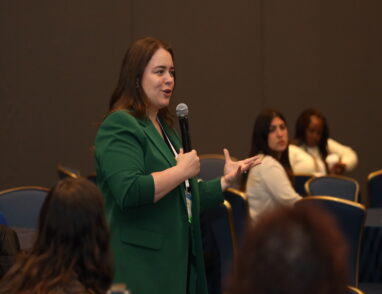COVID-19: Working to Help the Most Vulnerable
April 17, 2020 · Jazmyne Carter
No one escapes. It’s clear. Coronavirus has infected every American life. If you’ve managed to avoid the virus itself, all bets are, it’s still wreaking havoc in your economic and social activities.
If you are tracking the news, you’ve seen the alarming statistics. The virus’ spread has proven particularly lethal in minority communities and other traditionally underserved communities.
We know many of these communities—as a population—faced significant health challenges before. Now, the virus is zeroing in, attacking the most vulnerable among us. Exacerbating it even further, these communities often lack access to essential services like grocery stores and hospitals. And jobs? These communities have proven especially susceptible to the virus-prompted layoffs and job loss.
So, the outbreak starkly demonstrates health is shaped by the conditions in which people live, work, play, and grow. These are the social determinants of health (SDoH).
Work in the States

Health care thought leaders and organizations across the United States are stepping up their responses.
With businesses and school closings, access to health services become more limited every day— especially for these vulnerable populations. They already face food insecurity, poverty and the previously noted pre-existing health challenges.
Now, state governments are not only coordinating their Covid-19 responses in the health care setting. They are specifically addressing housing, food, transportation, education, and employment needs with the help of the Coronavirus Aid, Relief, and Economic Security (CARES) Act. The National Academy for State Health Policy now keeps track of how states are using billions of dollars in federal relief to tackle the virus and assist those who need it most.
Work in NCQA
NCQA is hard at work too. We’re brainstorming ways to address social determinants of health (SDoH) in response to COVID-19.
For example, we’re working with California to build bridges between health care and community health organizations. Our proposal to create standards for Medicaid managed-care plans would aim improve access and outcomes by encouraging plans to focus on social determinants.
This project is just beginning. But the research on making it happen, needs to be funded.
Resources
So many people have their hands in working to help the most vulnerable populations. Here are few resources:
Communities, organizations and leaders are still learning how to best handle COVID-19. Before the virus, tackling social determinants of health was already underway. Now, it’s even more imperative. Let’s get to work.
Update us on your SDoH thoughts, plans and activities. Share them in the comments below.







